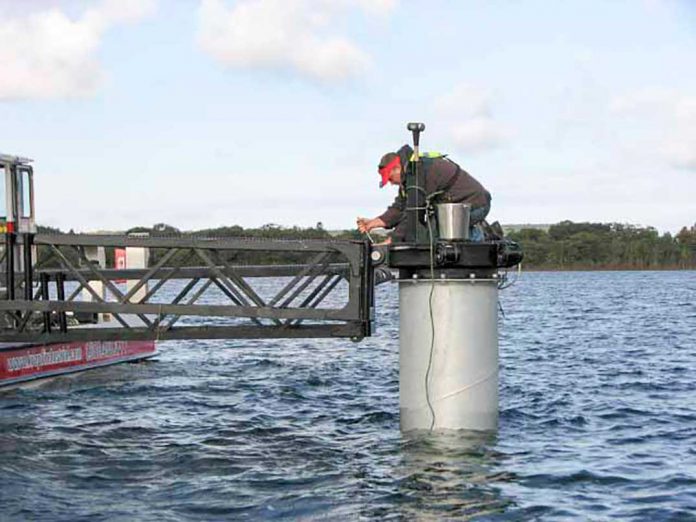KAGAWONG—Billings council has received unanimous support from the members of the Manitoulin Municipal Association (MMA) in lobbying for increased broadband services across Manitoulin communities.
In many ways it has come to my attention how much of a disparity there is in terms of services and costs there is in broadband across the (Manitoulin) Island,” stated Billings Councillor Barb Erskine at the MMA meeting last week. “Even just in Billings there are different levels of service and costs depending on where you live and I’m sure this is the case across the Island.”
“There are a lot of ramifications (with the disparity) in economic growth, for businesses and those who work from home. People are paying a lot of money for minimal service in a lot of cases,” said Councillor. Erskine. “I don’t know how for instance more people can be attracted to the Island to operate businesses without this service. Even for those taking post-secondary education online on the Island, it is difficult.”
“So there is education, economic, and social implications with weak broadband service,” said Councillor Erskine. She pointed out Billings Township has a delegation going to the Rural Ontario Municipal Association meeting at the end of January, to meet with the Ministry of Infrastructure Bob Chiarelli, and the Minister of Northern Development and Mines, Claude Gravelle, to advocate for enhanced broadband service.
The current standard the federal government is pursuing (for broadband) is five megabits per second, which is very low, and a Canadian Radio-television and Telecommunications (CRTC) report recommends that the standard should be 50 megabits per second to download and 10 megabits per second to upload, Councillor Erskine told the MMA.
“My understanding is that the province looks favourably on this issue and the need for improved expanded broadband service,” said Councillor Erskine who raised the issue. She said the federal government is contributing to connectivity but at very less than is needed.
“The reliability is not good here (Billings) and other areas on the Island,” said Councillor Erskine.
The Canadian Radio-television and Telecommunications Commission (CRTC) recently declared that broadband access internet services is now considered a basic telecommunications service for all Canadians. The CRTC is also setting new speed targets and creating a new fund that will invest up to $750 million over and above existing government programs.
“Access to broadband internet services is vital and a basic telecommunication service all Canadians are entitled to receive,” said Jean-Pierre Blais, Chairman and CEO, CRTC, in a release. “Canadians who participated during our process told us that no matter where they live or work in our vast country-whether in a small town in northern Yukon, a rural area of eastern Ontario or in downtown Calgary-everyone needs access to high-quality fixed Internet and mobile services. We are doing our part to bring broadband services to rural and remote communities.”
“The availability of broadband internet, however, is an issue that can’t be solved by the CRTC alone,” said Mr. Blais. “All players in the Canadian communications landscape will need to do their part to ensure Canadians have access to the services they need to participate in the digital economy.”
Mr. Blais continued, “all levels of government must address gaps in digital literacy. Affordability concerns are best addressed by the emergency of a dynamic market place where service providers compete on price for telecommunication services, in conjunction with social responsibility programs of telecommunications carriers and different levels of government.”
Further to its legislative mandate, the CRTC has set the following targets for the basic telecommunications services that Canadians need to participate in the digital economy including speeds of 50 megabits per second (Mbps) download/10 Mbps upload for fixed broadband internet access services, an unlimited data option for fixed broadband access services and the latest mobile wireless technology available not only in homes and businesses, but also along major Canadian roads.
“The federal connection to standards, 5 mbps to download was set back in 2008-2009,”continued Councillor Erskine. “There is a big difference between this and what the CRTC says the standard should be. Part of delegation’s proposal is that services here need to catch up to levels elsewhere.” She noted in southern Ontario a large group of municipalities banded together to lobby for improved broadband services and a huge infusion of cash was provided for this. “If we work together are chances are better of getting upgraded services.”
“We could all use upgraded broadband services,” said Al MacNevin, mayor of the Northeast Town. “This is a motion I would be happy to support. I think these services are essential.”
Councillor Erskine noted “Bell offers 5 mbps in Billings, it costs $145 month if not higher in some cases. In Sudbury 50 mbps is $84.95 month and customers have unlimited use. We (the Island) are paying a lot for very basic service.”
The MMA passed a motion indicating that the MMA share the concerns about the inadequate speed and high pricing of broadband services available on Manitoulin, and that a delegation is scheduled to attend the ROMA conference and discuss these concerns with provincial government representatives, that the delegation advocate for increased broadband services across Manitoulin.





